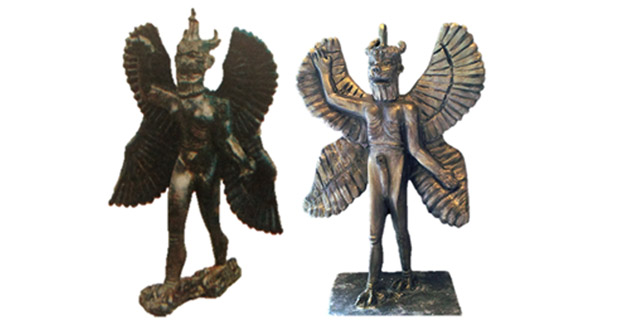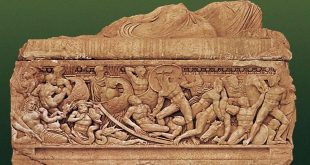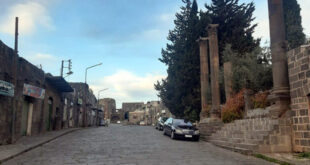Damascus, SANA – A statue of Pazuzu, the king of the wind demons in Assyrian mythology, was unearthed in 1978 in Deir Ezzor, northeastern Syria.
Specifically, the statue was discovered in a palace located in the northeastern corner of a city in Dur-Katlimmu, one of the kingdoms established by the Assyrians on the eastern bank of Khabour River, 75 km northeast of Deir Ezzor city.
According to historian Mahmoud al-Sayyed of the Archeology and Museums Directorate, Pazuzu was the son of the god Hanbi and it also symbolically represented the gods of weather, war, love, and the Underworld.
Pazuzu has the body of a man, the head of a lion, talons of an eagle, two pairs of wings and a scorpion’s tail. His right hand points upward and his left hand points down.
The statue of Pazuzu, al-Sayyed noted, is small in size as it is only 16.5 cm high. It is made of red brass and dates back to the period between 650-600 B.C.
Pazuzu was believed to have good traits, chief among them was driving away evil spirits. He was sought to cure people and expel evil spirits from the bodies of possessed people. Amulets bearing his likeness were used to ward off the malicious influence of his rival Lamashtu, a demon or a dark goddess who menaced mothers and children.
Manar al-Frieh/Haifa Said
 Syrian Arab News Agency S A N A
Syrian Arab News Agency S A N A



